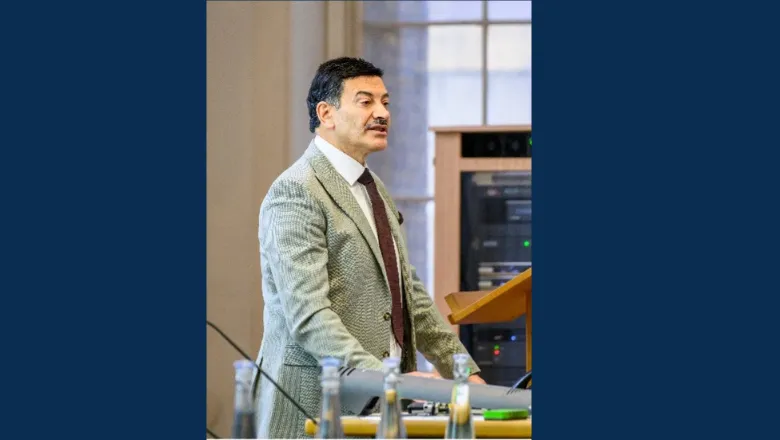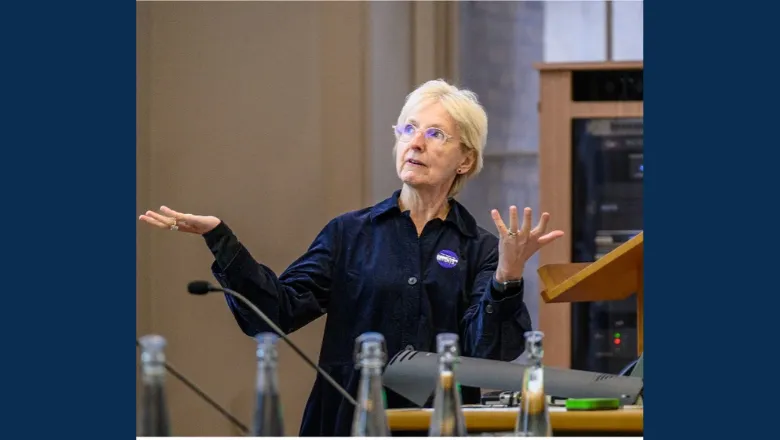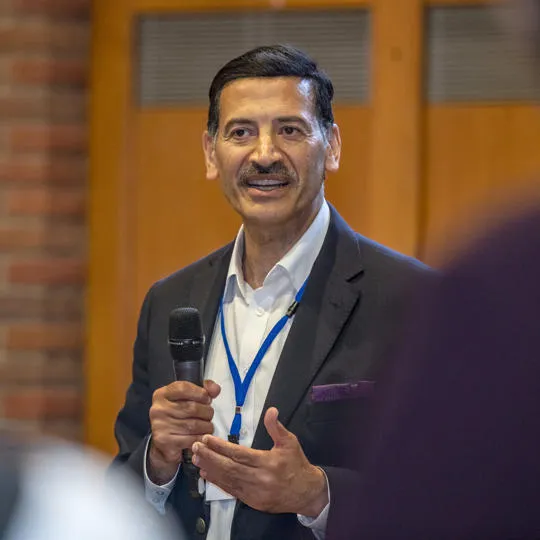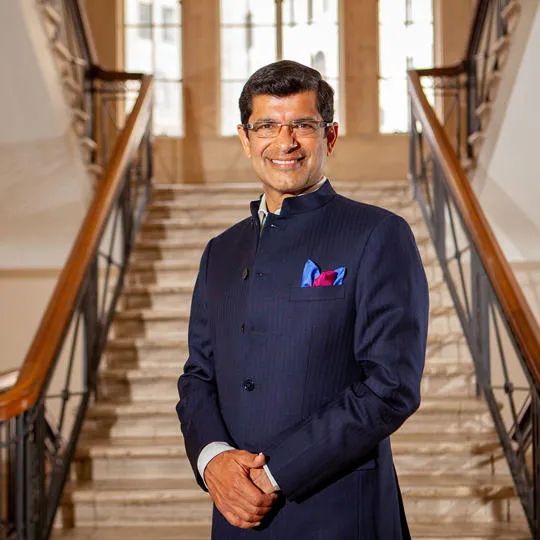Research is core to King’s – what we do, what we care about, and how we educate. Developing a thriving research culture is not only vital for our University but also for society as a whole.
Professor Shitij Kapur, Vice-Chancellor & President of King’s College London
21 January 2025
King's brings together research culture sector for a day of connection and reflection
The inaugural King’s Research Culture Symposium convened leaders and innovators in the research culture space, to explore and interrogate common challenges and emerging initiatives, fuelling practice sharing and collaboration across the sector.

The Symposium was opened with remarks from the Vice-Chancellor of King’s, Professor Shitij Kapur and Vice President (Research and Innovation), Professor Sir Bashir Al-Hashimi, who highlighted how King’s values all involved in its research endeavour and outlined how the University is proactively reimagining what a good research culture looks like.
An opening keynote was given by Executive Chair of Research England, Professor Dame Jessica Corner who explored the organisation’s role in supporting research culture, with a Q&A chaired by Senior Vice President (Academic) at King’s, Professor Rachel Mills. Professor Corner’s presentation positioned research culture as a global endeavour and highlighted the intersectionality of research culture challenges, including career precarity in research.

Three panels followed, each focusing on one of King’s three Research Culture pillars: A thriving community, valuing diverse contributions and good research practice.
Chaired by Professor Mitul Metha, Director of the Centre for Innovative Therapeutics at King’s, the first panel explored how we value and reward people and ideas across the research ecosystem. Dr Aline Tabib-Salazar, Programme Manager at The Institute of Cancer Research and James Graham, Head of Research Software Engineering at King’s, outlined the importance of technicians and research software engineers to the research endeavour before Dr Hetan Shah, Chief Executive at The British Academy, brought the perspective of a national academy.
To make a truly sustainable, healthy system, we need to focus on its greatest asset – the people – the vast range of people who carry out, support and enable research, from researchers themselves to technicians, software engineers and research professional staff.
Professor Dame Jessica Corner, Executive Chair of Research England
The second panel introduced attendees to several funded projects across the sector related to building thriving communities in research and included lively discussion of how institutions can bridge the gap between policy and practice to best support their people. Chaired by Lorraine Kelly, Director of Culture and Talent at King’s, this session included presentations from Alex Peden, Head of Research Cultures at University of Edinburgh, Dr Dan Mullins, Research Development Manager at Birkbeck, Dr Thandiwe Hara, Innovation and Research Policy Manager at University of Oxford and members of the INKLUDE team at King’s, Jasdeep Singh and Dr Hana Morel.
I believe complexity leads to creativity, and that is the approach I aim to bring to research culture. How do we break such a broad concept down into two or three actionable priorities that will lead to healthy research culture? How do we embed simplicity and clarity? At King’s, we have identified three objectives that will determine our research culture: fostering a thriving community, valuing all contributions, and championing good research practice.
Professor Sir Bashir Al-Hashimi, Vice President (Research and Innovation)
The third session was chaired by Professor Tim Newton, Dean of Research Culture at King’s, and reflected on the links between good research culture and good research practice, interrogating the incentives that underpin the research ecosystem. This session welcomed Dr Stephanie Neave, CEO at UKRIO, Professor Marcus Munafo, Chair of the UKRN and Dr Lizzie Gadd, Head of Research and Innovation Culture and Assessment at University of Loughborough.
The Symposium underlines King’s commitment to reimagining research culture and to using its convening power to bring together relevant stakeholders from a diverse range of universities and funders, to make tangible change.
Research Culture at King’s is led by a central team working closely with faculties and directorates to inform and enable strategic change at various levels. Socialising core research culture principles and initiatives across King’s is a large part of the central team’s mission. If you would like to find out more about the team, or would be interested in incorporating research culture into a local event, please reach out to ResearchCulture@kcl.ac.uk


